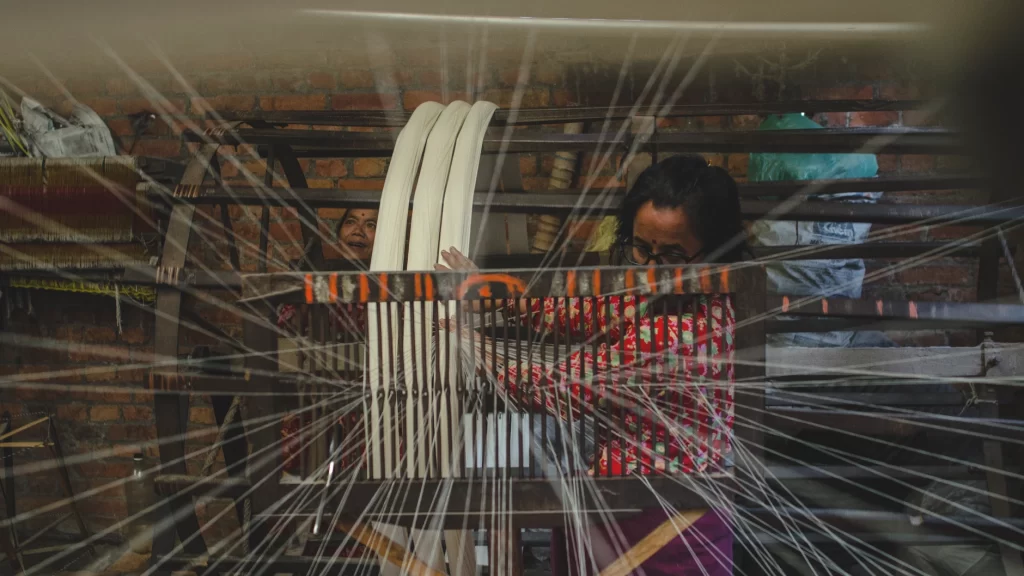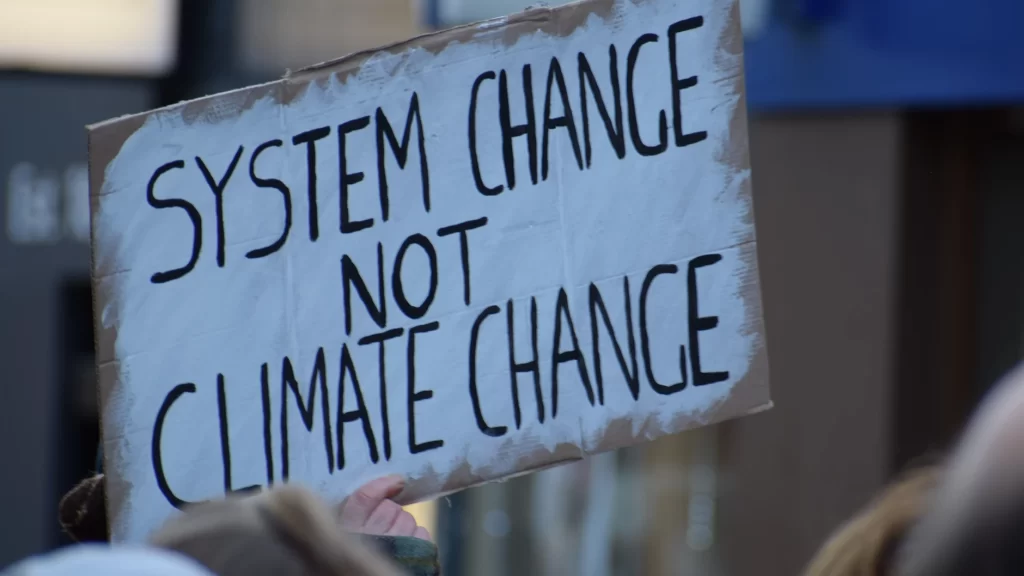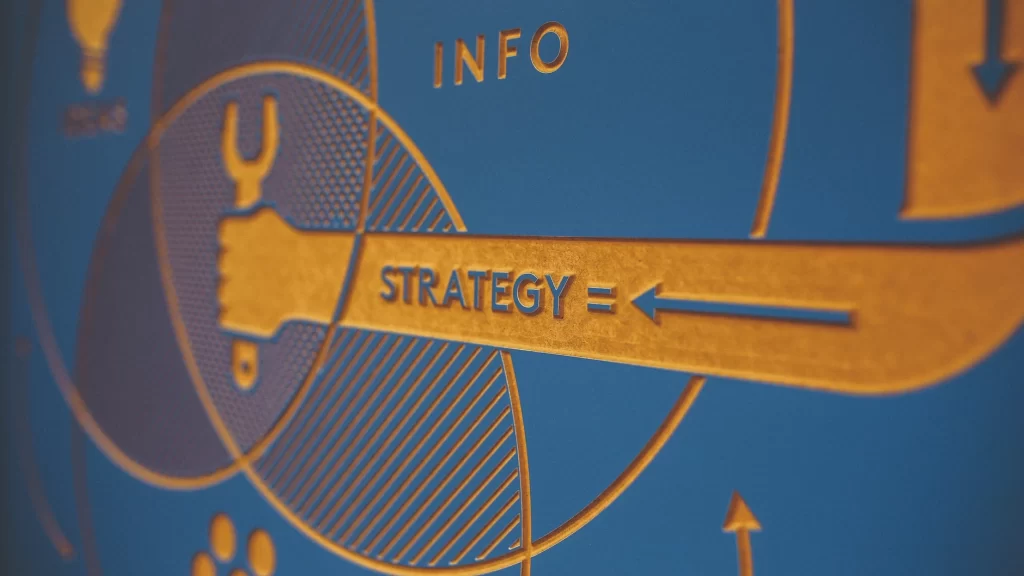Start where you are.
Use what you have.
Do what you can.
– Arthur Ashe
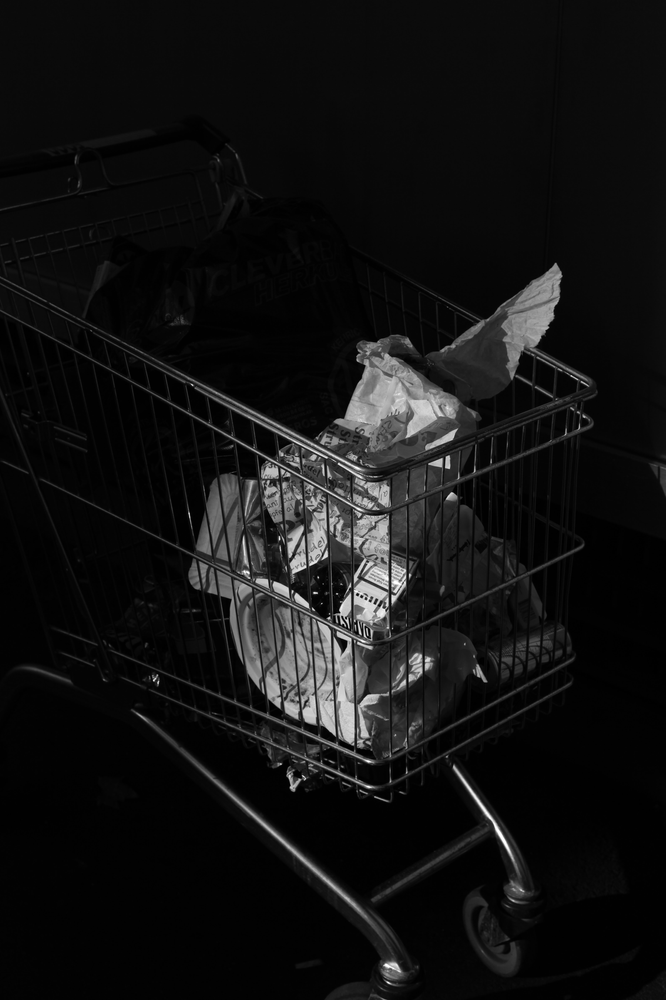
Ever wondered about that cringey feeling you get when you’ve just received that pretty bauble you’d been lusting after, but its crammed with bubble wrap? Or when you read an article about your favourite fashion brand following unethical practices? Or even when you see a plastic straw in your takeaway coffee—even though you didn’t ask for it? Or forget to carry your own water bottle on a hot day and end up having to buy a plastic one?
Eco-guilt is the remorse we feel every time an action is potentially harmful to the environment—even though it may be just one tiny fibre of microplastic! When it comes
to our wardrobes, eco-guilt creeps in when we
buy something that’s not planet- or people-friendly. The purchase may well have been spurred by social, economic or other compulsions and not always by plain, simple greed, but more frequently than not, it continues to weigh heavy on our conscience for a while.
We often realise, only much later, that we didn’t really need a certain purchase. But the good news, as revealed by a Fashion Revolution survey, is, more than one in three people consider social and environmental impacts while buying clothes. On the flip side, this leaves us more vulnerable to eco-guilt or sometimes something more. Dr Dawnn Karen, Founder of Fashion Psychology Institute, New York, talks of buyer’s remorse—the regret you feel after purchasing an item. “This guilt you feel then paves the way to anxiety,” she says.
According to Prof Aurore Bardey, Associate Professor of Market, Burgundy School of Business, France, eco-guilt is usually a personal emotion, one that is often magnified due to societal pressure. “It is the voice constantly echoing in our heads, telling you that ‘you need to save the planet’,” she elaborates. We often allow ourselves to be weighed down by this pressure, feeling the burden to save the planet is on our shoulders alone. “And then, there are questions like what are we leaving behind for our children, or, are we exhausting the planet’s resources by that single ‘not so sustainable’ purchase,” Prof Bardey adds. “These don’t help either.” What all of this does do, however, is cause confusion and panic in our heads—we want to do our bit but we may not know how.
The Individual vs The Collective
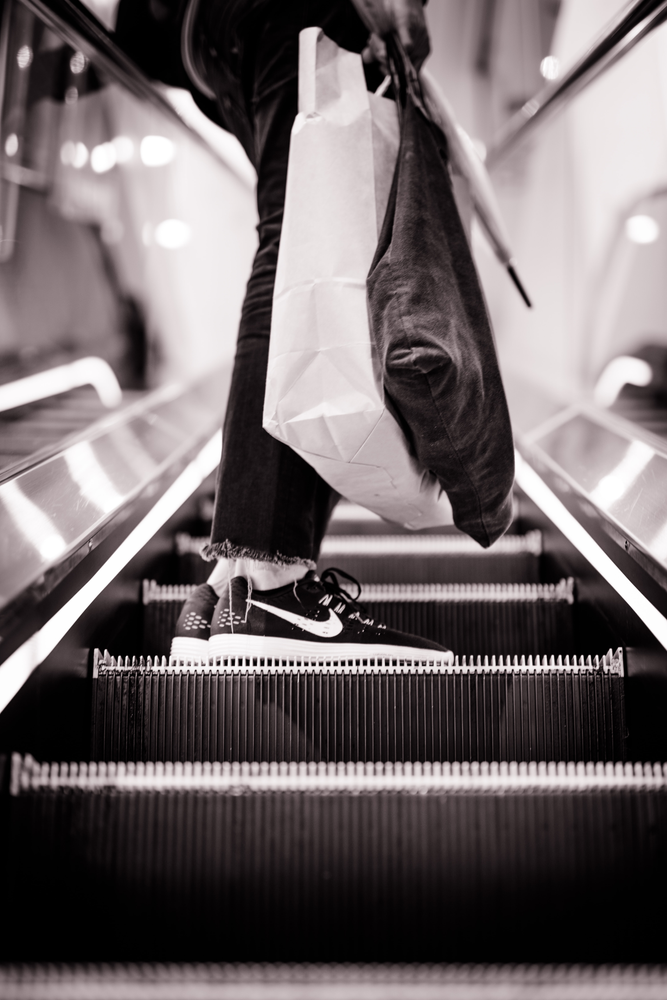
Feeling cheated after falling prey to a greenwashing tactic? You’re not alone. Far
too often, we, as a community, fall for greenwashing, believing we are making a responsible choice when, in fact, we’re just buying more fast fashion. “I’ve been a victim, too,” admits Prof Bardey. “In spite of being an expert in the field!” She calls this an eco-upset, which, Dr Karen argues can be collective or individual. “It starts at an individual level but as the awareness spreads, it becomes more collective,” Dr Karen elaborates.
“This collective guilt we feel is actually good as that’s how change comes about,” says Dr Karen. “It’s a lot like how Black Lives Matter—collective guilt has helped bring about a change. In a society like ours, a person may feel ostracized for not holding the same stance as the collective or for being too vocal about their guilt.” This lack of control can further their already mounting anxiety.
According to Prof Bardey, we all share that feeling, the need to save the planet, the need to make a change, but there is also the belief that if you are not 100% sustainable, then you are not doing enough, which is completely false. “People who have already been on this journey, for a while, often face less eco-guilt, as they have faced the adversities and are knowledgeable enough to know that it’s absolutely impossible to be 100% sustainable,” she elaborates. “On the other hand, people who are just starting out on this journey are the ones usually most affected.” “Eco-guilt can, nevertheless, also be found in the interim stage,” states Dr Dawnn, “It can resurface if you develop a liking for a new brand. With the inclination to buy from it comes the urge to research its moral and ethical values, which can be lead to the return of this guilt.”
How eco-guilt impacts our lives
Eco-guilt has less to do with the environment per se, and more to do with the weight of our own expectations. “Self-pressure is one of the key factors pushing people to eco-guilt,” affirms Prof Bardey. “And while there is no official research that backs up the fact that eco-guilt affects any interpersonal relationships, I can talk about my own personal experience with my university students, who, I find, are able to maintain cordial relationships with their friends who do not share the same sustainability agenda.” Turns out, most people are open to dialogue and honest conversations. There are so many conflicting opinions out there, about what is sustainable and what is not, the more we talk, the better we are able to navigate this tricky territory.
Recognising eco-guilt
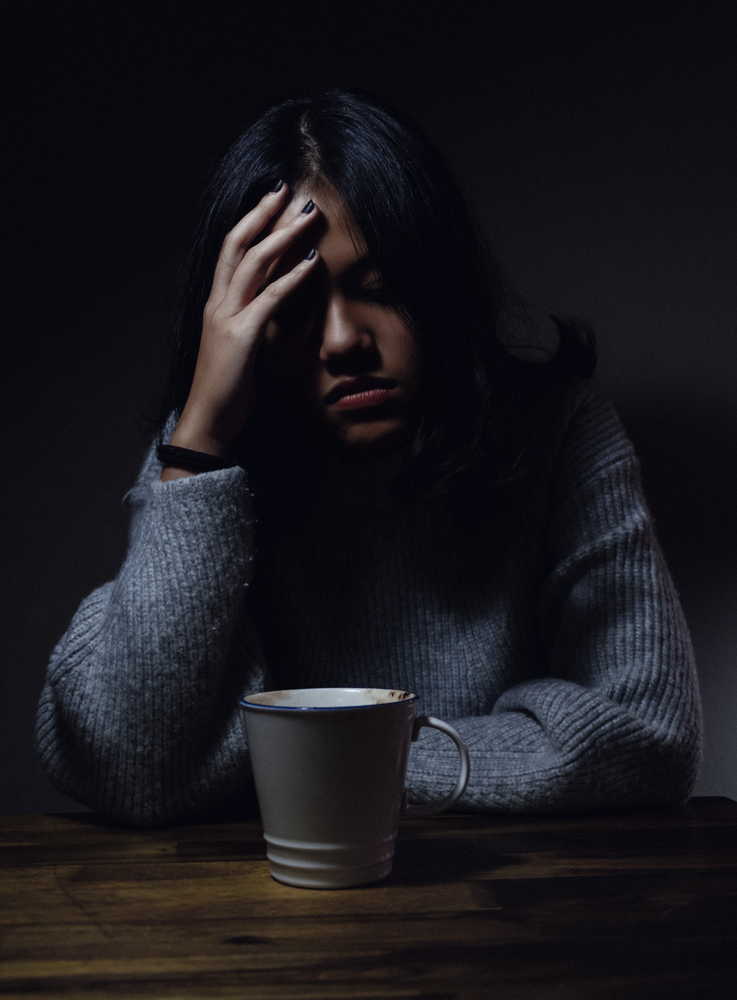
Prof Bardey describes eco-guilt as a ‘not good enough syndrome’. “It is more a self-esteem issue rather than a serious mental health concern or something that may lead to physiological symptoms,” she says. “Some severe cases may make their way into anxiety, as we tend to suppress feelings like guilt and shame. Eco-guilt is similar—it makes a person feel shame, for not living up to the required standard of sustainability. And like every other feeling that’s not shared, it tends to become internalised and can make one irritable, panicky or anxious.”
Eco-guilt manifests itself in the choices we make. “A person may feel uncomfortable or restless about their choice of garment, or speculate upon its production practices,” says Dr Karen. “Discovering that something you love to wear was made in an unethical environment, such as in a sweatshop, can cause guilt as well as push you to negatively assess the garment and also, yourself.”
Dealing with eco-guilt in a loved one
Since there are no clear symptoms of eco-guilt, it’s hard to tell when someone is afflicted by it. Fortunately, eco-guilt does not need professional mental health help. “It’s only worrisome if it starts interfering with day-to-day activities,” says Prof Bardey. She recommends frequently talking to a family member or friend who is concerned about sustainability. “Focus on how the possibility of being 100% sustainable is next to none, and bring it up often,” she asserts.
Dealing with your own eco-guilt
“If you are feeling guilt due to the environmental crisis we are in, it means that you’re in the right direction—that you care,” says Prof Bardey. Even so, as Dr Karen recommends, you should try and take it one day at a time. She also suggests joining up with a group of people—online if you can’t find any around you—who feel the same way as you. “You’ll realise you are not alone in this,” she says.
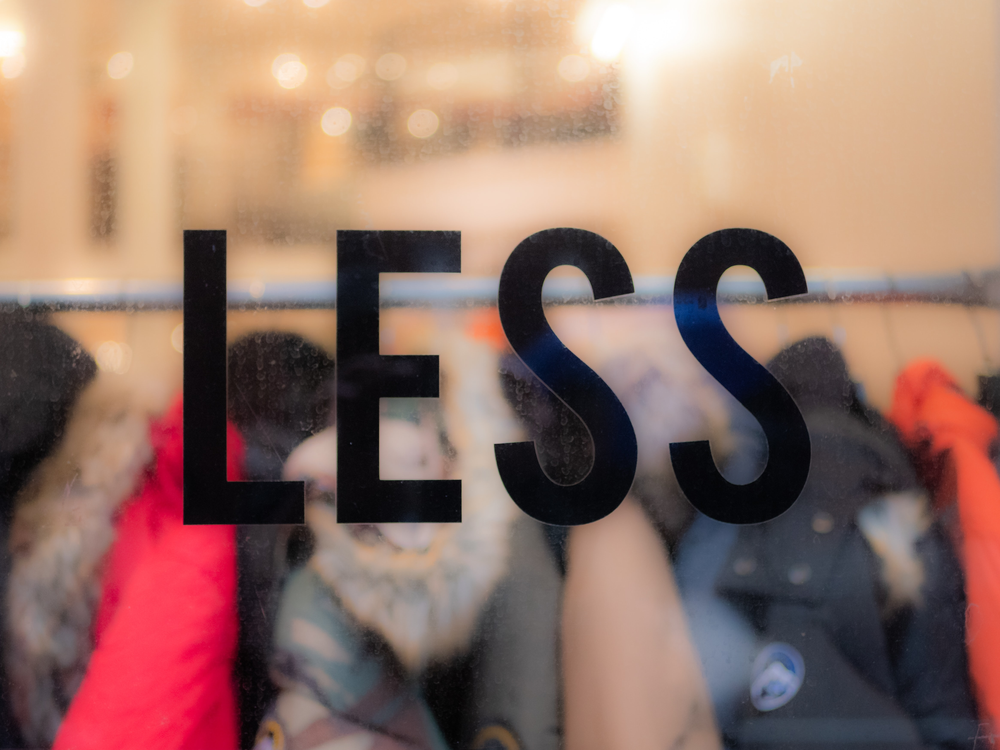
“Once gotten rid of, for eco-guilt to not bounce back into your life, it is necessary to pinpoint your trigger points,” says Dr Karen, who also offers support to and mentors those who are struggling with their relationship with fashion. “It’s a gradual process, like every mental health issue, but there are coping mechanisms you can turn to.” One of her favourites is what she calls ‘mindful morning’, where by figuring out your day, you pick either a colour or a mood you’re going to wear, which then helps you take control and feel lighter. “Having control over your life, even for a day, can lighten up the anxiety,” she says. “Being conscious of where you are buying your garments from, knowing its source and the people involved in it, helps a lot, too.”
“The more I do my research on sustainable fashion, I find consumers are able to move away from eco-guilt as they do what they can, and if they are not pleased with what a brand is doing, they just don’t buy from that brand,” adds Prof Bardey. “Sustainability is such a good thing to do, in whatever measure—we need to embrace that and get rid of the guilt.” She believes spending time to do your research on sustainable brands is a good way to go about it. Although the most sustainable way is to buy materials you can use to design your own dresses, but only about 0.005% of people attempt it.
Social media and eco-guilt

Social media can be an amazing tool in understanding smart fashion. While we might feel social media may magnify the guilt, Prof Bardey and Dr Karen both believe the opposite to be true. “Social media can
be heaven and hell at the same time, depending on how you use it,” says Prof Bardey. “If you follow someone who is leading a highly sustainable lifestyle, it can make you feel extremely guilty for not being there yet, but it’s also a great learning opportunity, to see what you can do and to witness that what you’re aiming for is, indeed achievable—that someone out there is doing it.” Social media is replete with users who are sensitive to the issue and are working to spread awareness, while stressing upon the fact that the key to a sustainable lifestyle is moving step by step, and not all at once. “Education will help move away from guilt,” says Prof Bardey, appreciating this trend.
Dr Karen recommends adopting habits you discover on social media, from people who are leading more sustainable lifestyles. “Instead of feeling anxious, know that you are doing everything you can, in your capacity, given your unique social and economic station,” she says.
We might feel it is our responsibility or our fault the world is in the state it is in. But truth is, most of us are doing whatever we can, however we can, and no one is keeping score. There is no measure of your effort. Just be proud that you care!


